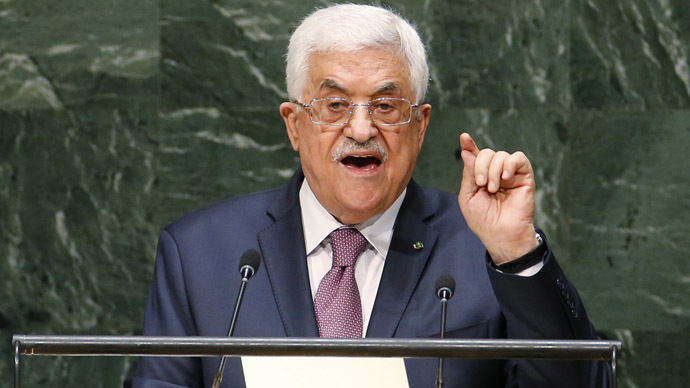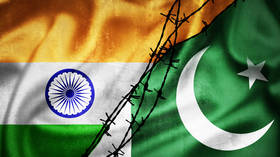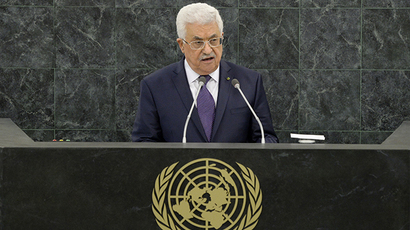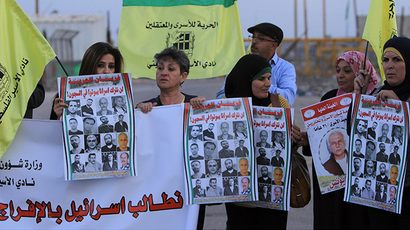Abbas demands Israelis stop occupation, ghettoization of Palestine

Without strong international demand for Israel to withdraw from the occupied lands, the Palestinian people will eventually be driven into fragmented ghettos, President Mahmoud Abbas told the UN General Assembly.
The Palestinian President said he would seek a UN Security Council resolution to demand a “firm timetable” to stop Israeli occupation. Speaking in New York on Friday, Abbas also accused the Israelis of committing war crimes during the recent 50-day Gaza war, which ended in a ceasefire on 26 August.
“We will not forget and we will not forgive, and we will not allow war criminals to escape punishment,” Abbas declared, adding that “the scale of this genocidal crime is larger, and that the list of martyrs, especially children, is longer, as well as lists of the wounded and disabled, and that dozens of families have been completely decimated.”
However, the resolution proposed by the Palestinians and the Arab group contradicts one being prepared by the US in cooperation with Israel, Jordan and Qatar. The American draft reportedly foresees the strengthening of the Gaza ceasefire under condition that Palestine provides Israel security guarantees while Tel-Aviv loosens its economic strangle.
If taken up for a vote, the Palestinian draft is expected to get enough support from the Security Council members to pass, with just a few abstentions, so Washington is likely to use its veto power to block the resolution.

In his speech, the Palestinian President also blamed Israel for failing in negotiations. He added that the US was unable to push Israel to stop settlement construction.
“It is impossible, and I repeat – it is impossible – to return to the cycle of negotiations that failed to deal with the substance of the matter and the fundamental question. There is neither credibility nor seriousness in negotiations in which Israel predetermines the results via its settlement activities and the occupation's brutality. There is no meaning or value in negotiations for which the agreed objective is not ending the Israeli occupation and achieving the independence of the State of Palestine with East Jerusalem as its capital on the entire Palestinian Territory occupied in the 1967 war.”
Experts say that the new strategy by Abbas to make the conflict not just an international but also a juridicial matter may lead to another diplomatic rift between Palestine and Israeli Prime Minister Benjamin Netanyahu’s government. With little chance to solve the issue through the Security Council, Palestine is expected to seek acceptance to more international bodies to boost its statehood, including the International Criminal Court.
“The time has come to end this settlement occupation,” said Abbas. Talking about a timeframe for Israel’s withdrawal which some observers expected to be set for three years, he emphasized:
“We discussed different timeframes in our internal discussions from six months to three years, but without acceptance by the Security Council for the need for a deadline any time frame is meaningless.”
Earlier this month Tel-Aviv announced that another 1,000 acres of land near Bethlehem, in the West Bank, would become its territory to be used for new Israeli settlements.
“The future proposed by the Israeli government for the Palestinian people is at best isolated ghettos for Palestinians on fragmented lands, without borders and without sovereignty over its airspace, water and natural resources, which will be under the subjugation of the racist settlers and army of occupation, and at worst will be a most abhorrent form of Apartheid,” Abbas told the Assembly.















